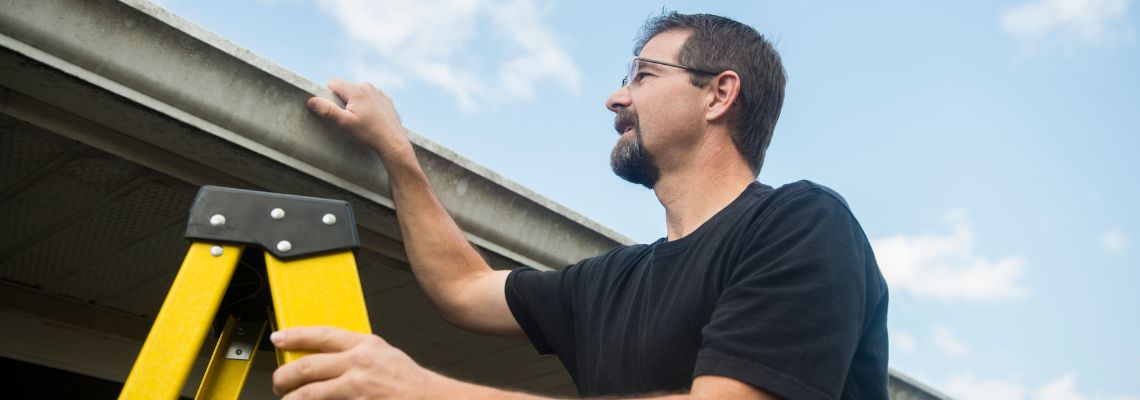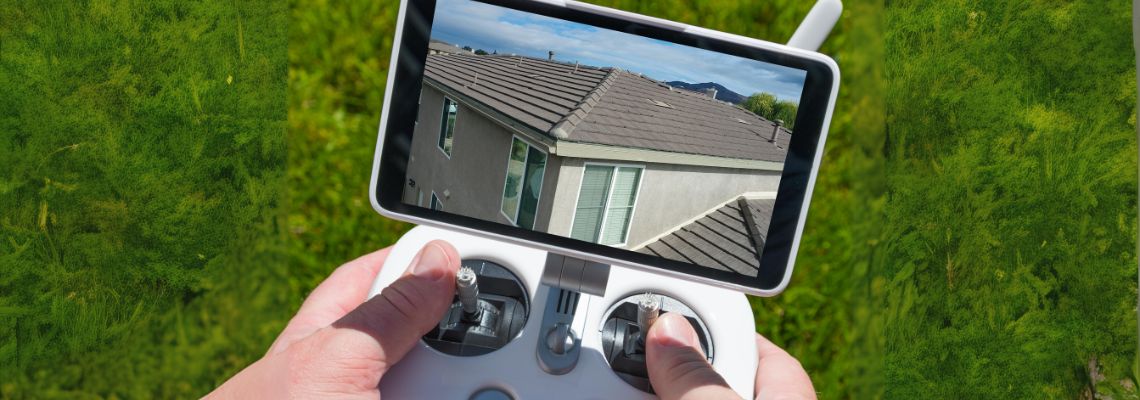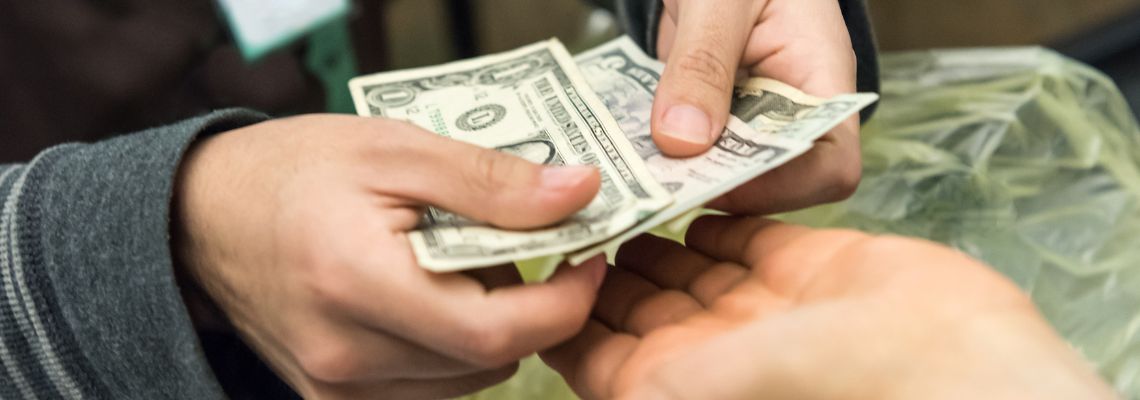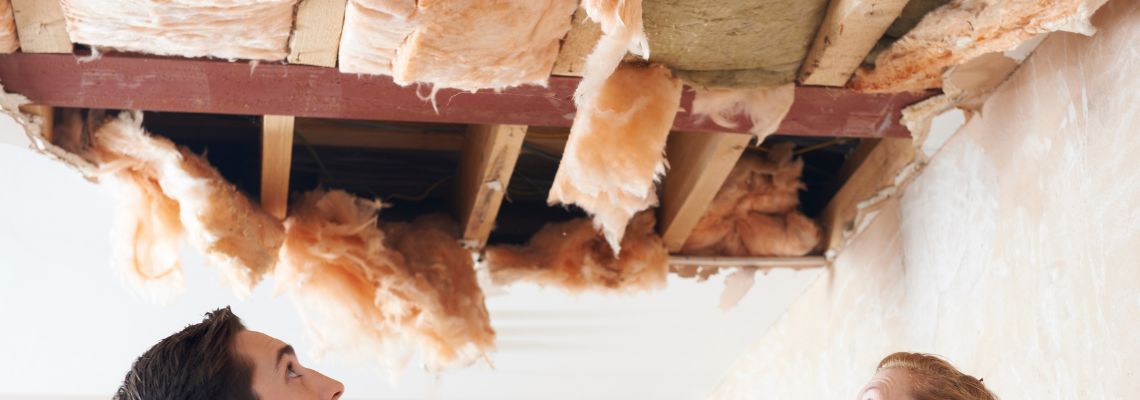What is the Cost of Roof Inspection in Texas?
Living in Texas means dealing with unpredictable and extreme weather conditions. That’s why having a strong and sturdy roof is crucial for both homes and commercial settings. Your roof acts as a protective shield, shielding your place from all types of weather elements. It is advisable to have your roof checked regularly, as after about 10 years, roofs can start to wear out, especially in areas with frequent storms.
A well-maintained roof not only keeps your property safe from leaks, mold, and high energy bills but also adds value to your property. Whether you’re planning to buy a new house, recovering from a recent storm, or just getting ready for the winter season, it’s essential to hire a professional to inspect your roof. The frequency of inspections depends on factors such as the roof type and the weather conditions in your area. In case of any issues, it’s crucial to address them promptly.
This guide aims to help Texas homeowners and businesses understand the costs and steps involved in getting their roofs inspected. Knowing what it takes to keep your roof strong and your property safe is essential to living a worry-free life in Texas.
What is a Roof Inspection, and Why Should You Invest in it?

A roof inspection is a comprehensive visual check of the inside and external structures of your home’s roof. Trained inspectors carefully identify areas that require repairs or additions to extend the roof’s life and strengthen its integrity. After the inspection, the roof inspector provides a complete report explaining the roof’s present condition. This report acts as a guide, highlighting specific areas of concern that require immediate attention to keep the roof in good condition.
Additionally, your roof serves as an important barrier, protecting your home’s interior from the elements. periodic checks are essential for protecting against any damage caused by external causes. For example, early identification of leaks helps avoid water entry, which can result in costly repairs and additional structural damage. Minor concerns, such as broken shingles or defective flashing, may be identified early on and repaired quickly, preventing them from growing into larger problems. This preventative strategy not only protects the integrity of your roof but also reduces the need for major and expensive repairs in the future.
Understanding What's Included in a Roof Inspection in Texas

Maintaining the structural integrity of your roof and protecting your home from any damage need regular inspections. To guarantee the durability and longevity of your roof, an experienced roofing contractor addresses any issues found during a rooftop inspection by doing an extensive inspection of several components. Now let’s explore the main areas that are covered in a complete roof inspection:
1. Assessing Damage and Deterioration
During the inspection procedure, careful attention is paid to identifying any symptoms of damage or degradation on the roof surface, taking into account rooftop inspection issues. This involves checking for holes, loose or missing shingles, and other weather-related wear and tear that could compromise the roof’s performance and protection.
2. Assessing Crucial Elements
3. Managing Drainage and Water
Effective water management is critical for reducing moisture-related issues that can cause considerable damage over time, as well as resolving concerns about rooftop inspection. The inspector inspects the roof for any places prone to water collecting and checks the condition of the gutters to guarantee appropriate drainage and reduce the danger of water penetration.
4. Checking interior spaces
Accessing the attic allows a thorough examination of the internal areas for evidence of water damage, leaks, or ventilation concerns, which are important for rooftop inspection. This phase provides important insights into possible roof risks and allows for timely corrective action to prevent additional harm.
5. Identifying Vegetation Concerns
If there is mold, moss, or algae on the roof surface, it indicates that there are underlying moisture retention issues that need to be treated. Identifying and fixing vegetation issues early on can help avoid degradation and prolong the life of your roof.
6. Structural Integrity Assessment
An in-depth examination of the roof’s structural components, such as trusses and rafters, aids in identifying any structural flaws or irregularities that may endanger the roof’s stability, which is important for rooftop inspection. This investigation assures that the roof is capable of resisting external forces and environmental factors.
7. Shingle Inspection and Material Testing
In order to address rooftop inspection issues, the state of the shingles is carefully inspected to find any indications of damage, such as missing, loose, or damaged shingles, as well as stains or discoloration. In order to assess the roofing material’s lifetime and performance, the inspector additionally assesses its quality and integrity.
What is the Average Cost of Roof Inspection

Roof inspections are crucial in Texas, especially in areas that are prone to severe weather conditions such as high winds and hail storm damage. These inspections are typically conducted in the spring and autumn seasons to ensure that the roof is well-prepared for any weather-related issues. Homeowners prioritize these inspections to prevent roof damage and maintain the structural integrity of their homes.
Professional roofing experts conduct different types of inspections, each with its own associated cost. Some firms provide free roof inspections, while others charge a fee ranging from $70 to $600, depending on the level of detail and scope of the inspection required.
It’s important to note that the cost of roof inspections may vary among roofing contractors based on factors like location, expertise, and specific services offered. While the cost range may seem broad, most reputable roofing companies in Texas generally fall within these parameters. However, additional fees may apply in certain cases, depending on the scope of the inspection and any specialized services provided.
Here is a breakdown of the cost for different types of roof inspection in Texas:
1. Physical Inspection
A physical inspection is ideal for assessing easily accessible roofs such as flat roofs and they can cost between $75 to $200. This method involves a thorough examination of both the exterior and interior components of the roof, including the attic, to identify signs of wear or damage. This cost-effective approach provides valuable insights into the roof’s condition without the need for more advanced techniques. Some insurance policies may also cover the cost of this inspection.
2. Drone Inspection
For roofs that are too steep or unstable to access safely, a drone inspection offers a convenient and efficient solution. This method costs between $155 to $400 and provides a comprehensive overview of the roof’s exterior through detailed images captured by drones. This is particularly beneficial for large or complex roofing systems, offering a safer alternative to traditional inspections. Some insurance policies may also cover the cost of drone inspections.
3. Infrared Inspection
Infrared roof inspections offer a specialized approach to detecting hidden issues. This advanced technology utilizes infrared imaging to identify temperature variations across the roof’s surface, pinpointing areas of moisture infiltration or structural damage. While this method may incur higher costs due to the complexity of the equipment and expertise required, it provides invaluable insights into the roof’s condition, ensuring proactive maintenance and long-term protection for homeowners. Infrared inspections typically range from $400 to $600.
4. Free Roof Inspection
Some roofing companies in Texas may offer free inspections, but homeowners should exercise caution. Free inspections may not be as comprehensive as paid options or meet the requirements of lending or insurance companies. Therefore, homeowners should conduct thorough research to ensure that the roofing contractor is reputable and understands any conditions associated with the free inspection offer.
5. Roof Certification
A roof certification typically ranges from $75 to $200 and is obtained following an inspection, providing detailed insights into the condition of roofing materials and estimated replacement timelines. Homeowners seek roof certifications to instill confidence in potential buyers, meet mortgage lender requirements, and gain peace of mind about their roof’s condition. This certification letter may add an additional $75 to $200 to inspection costs, serving as a crucial document to verify the roof’s condition and ensure the smooth progression of property transactions while providing assurance to all parties involved.
Factors Affecting Roof Inspection Costs in Texas:

Multiple factors may impact the cost of a roof inspection, so this is something that every homeowner has to consider. The following is a list of factors that impact the cost:
1. Roof Square Footage
The cost of an inspection is mostly dependent on the size and complexity of the roof. A complete inspection takes longer and requires more manpower on larger, greater square footage roofs. Apart from that, things like construction details and roof pitch might also have an impact on the final cost. While some inspectors could charge a set price, others would base their estimate on the roof’s square footage, with larger roofs costing more. When planning their budget for inspection costs, homeowners should take into account the size and composition of their roofs.
2. Shingle and Roofing Style
The cost of the inspection may vary depending on the kind of roofing material used. Slate, metal, and asphalt shingles are a few examples of roofing materials that call for different inspection methods and skill levels. For instance, assessing a slate roof might require certain training and tools, which would increase the cost of the inspection in comparison to asphalt shingles. To guarantee proper examinations and pricing, homeowners should ask the inspector about their particular roofing material’s level of knowledge.
3. Roof Inspection Type
The inspection method chosen may have an impact on the total cost. While drone inspections use airborne technology to acquire accurate photos, physical inspections require an in-person inspection of the roof’s external and inner components. Temperature differences are seen during infrared examinations, which help to find problems with insulation or moisture. Every kind of examination has benefits and drawbacks, with advanced methods generally leading to higher costs. To decide on the best inspection strategy, homeowners should talk to inspectors about their preferences and financial limitations.
4. Roof Slope and Accessibility
Costs associated with roof inspections may be impacted by the accessibility of the roof, especially if the roof has a steep drop or difficult slopes. Specialized tools, like drones or safety harnesses, could be needed for inspectors to examine and evaluate hard-to-reach places. Furthermore, inspectors may be concerned about their safety on steep rooftops, which might mean taking additional safety measures and thus raising inspection costs. Homeowners that have steep or difficult-to-reach roofs should be prepared for increased expenses and make sure that inspectors are properly trained to handle these kinds of situations.
5. The Extent of Damage
The degree of roof damage might affect inspection prices since more extensive damage might require longer assessment times and more detailed checks. Because they might have to invest more time and resources to correctly determine the amount of the damage, roof inspectors may charge extra for inspections requiring major repairs or replacements. It is recommended that homeowners inform inspectors of any identified problems or issues in order to enable thorough examinations and accurate cost estimates.
6. Location
The cost of a roof inspection may vary depending on the property’s location because of differences in labor prices, market circumstances, and accessibility problems. Compared to rural regions, inspection fees may be greater in urban areas with higher cost of living. Furthermore, the complexity of inspections and related expenses might be affected by factors including local building rules and the weather. When budgeting for roof inspection costs, homeowners should take into account the exact location of the property and receive quotes from local inspectors who are knowledgeable about the economics of the area.
Conclusion
The price of a roof inspection in Texas is minimal considering the priceless safety and peace of mind it offers your home. Regular inspections are a smart investment in protecting your house or place of business, especially with the state’s unpredictable weather and the possibility of roof damage. Maintaining the strength of your roof is crucial for long-term durability and safety, regardless of whether you require an infrared study, drone evaluation, or manual inspection.
NexLevel Roofing and Outdoor Living provides reliable and expert roof inspection services in Texas. Our team of specialists is dedicated to offering excellent inspection and roofing services, guaranteeing that your house is safe and resistant to the elements. Contact us directly for all of your roof inspection requirements, and rest assured that your home is in capable hands. Whether you’re looking for a “roof inspection near me” or want full roofing solutions, NexLevel Roofing is here to help.
Ready to Elevate Your Space? Let's Talk!
Experience unmatched quality and craftsmanship in the heart of Texas. At NexLevel, we specialize in transforming homes with precision roofing and bespoke outdoor living spaces. Our dedicated team combines years of expertise with top-tier materials to deliver results that not only meet but exceed expectations. Whether you’re envisioning a cozy fire pit for chilly evenings or a resilient roof to protect your home, NexLevel is your trusted partner. Dive into a world of possibilities and let us bring your vision to life.

